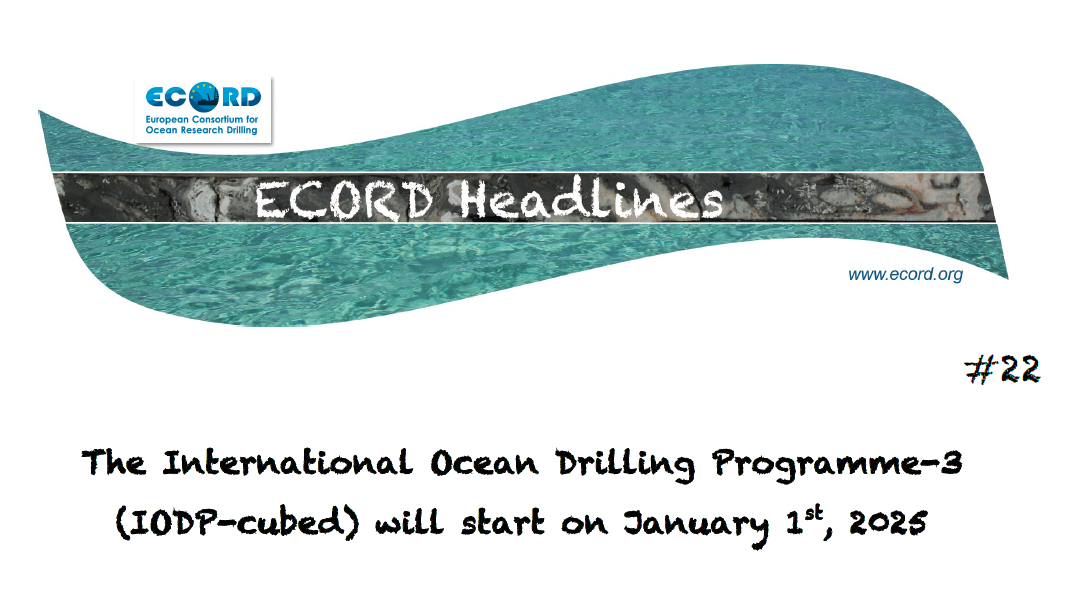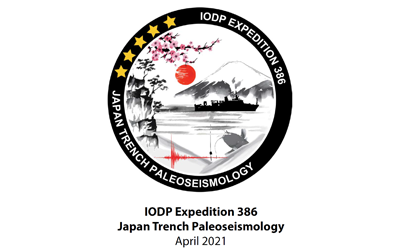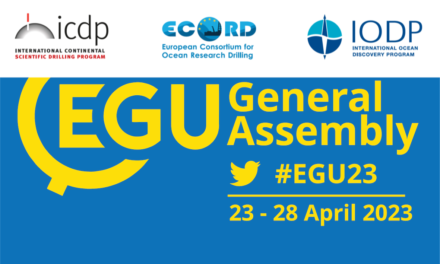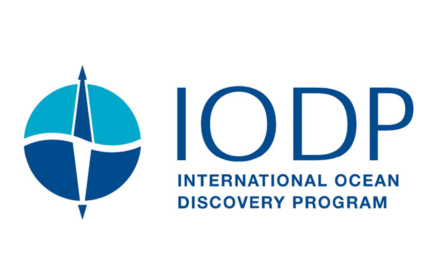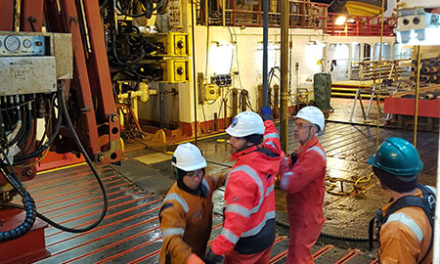Through a two-year long process of exchange of views and ambitions, ECORD and JAPAN entities agreed to build a joint scientific ocean drilling programme: the International Ocean Drilling Programme – IODP³ (IODP-cubed) that will begin immediately after the conclusion of the current IODP.
ECORD and JAPAN, two of the current IODP Platform Providers, will be the IODP³ Core Members. Organisations from other nations will be invited to join IODP³ as:
- Associate Members, who lack their own dedicated scientific ocean drilling platform(s) and making regular cash contributions to IODP³;
- Temporary Members, who may provide cash and/or project-based in-kind contributions (IKC) to access IODP³ expedition(s) and/or other services.
IODP3 will be based on the following major principles:
General:
- IODP³ will consist of an international scientific collaboration addressing important questions in Earth, Ocean, Environmental and Life sciences based on the study of rock and/or sediment cores, borehole imaging, in-situ observatory data, and related geophysical imaging obtained from the subseafloor.
- IODP³ will adopt a transparent, open, flexible and international modus operandi, adopting programme-wide standard policies and guidelines, sustainable management and publicly accessible knowledge-based resources.
- IODP³ will adopt the Enduring Principles of the 2050 Science Framework: Exploring Earth by Scientific Ocean Drilling.
Proposals:
- IODP³ will receive drilling proposals that are submitted with a bottom-up process by teams of proponents belonging to the international research community. Those proposals will address the objectives of the 2050 Science Framework or other outstanding new research ideas.
- The merit-based evaluation of drilling proposals will be conducted in a fair, open and transparent manner by advisory panels composed of top international experts from IODP³ Core and Associate Members selected through competitive calls. The advisory panels will provide independent advice to the platform operators on science quality, feasibility, safety, and environmental issues. The advisory panels will be logistically supported by the IODP³ Science Office and serve all the platforms employed by the programme.
Expeditions:
- IODP³ expeditions will be implemented by the MSP Operators, ESO and/or JAMSTEC-MarE3, following the Mission Specific Platform (MSP) concept. This concept will be expanded by diversifying drilling and coring technologies and applying them to all drilling environments, as determined by scientific priorities, operational efficiency and better value for money. D/V Chikyu and R/V Kaimei are identified as MSP facilities that are crucial for the successful implementation of the 2050 Science Framework.
- IODP³ expeditions duration will be flexible and determined by scientific requirements. Expeditions may be as short as 14 days, as long as up to several weeks or, for exceptional expeditions, up to several months, based on different implementation plans that will be included in the proposal.
- IODP³ expeditions will welcome in-kind contributions (IKC) and/or cash contributions from any IODP³ member or non-member country/institution. For existing IODP3 members, IKCs will be rewarded by extra Science Party positions on any IODP3 For IODP³ temporary members, IKCs will be rewarded by extra Science Party positions only on the specific expedition on which the IKC will be applied.
- IODP³ drilling expeditions will be scheduled by the MSP Facility Board based on their scientific merit and operational constraints within the limits of the available resources. The MSP Facility Board will also be the policy-making body for IODP³ drilling proposals and facilities.
- IODP³ expeditions are intended to have no significant environmental impact, in conformance with the highest accepted levels of environmental sensitivity.
- IODP³ expeditions will be undertaken by international teams of scientists forming a Science Party and selected by the MSP Operator(s) based on recommendations made by Programme Member Offices (PMOs). Participation rights in IODP3 expeditions will be scaled to the relative financial contributions of IODP³ Staffing decisions will consider, as far as possible, the goal of achieving the maximum diversity in science parties. Science Party staffing will be flexible and tailored to scientific objectives of expeditions.
Post Expedition:
- IODP³ will provide open access to all expedition samples and data once the expedition Science Party members have had the opportunity to complete the initial studies within the established moratorium period, typically a year. After the expiration of the moratorium period, the programme will make samples, cores and data available to any scientist, in accordance with the IODP³ Samples, Data and Obligations Policy following the FAIR data principles.
- IODP³ will include the services provided by the current IODP core repositories in Bremen (BCR) and Kochi (KCC).
All statements above are subject to changes
Gilbert Camoin, Director of the ECORD Managing Agency
Angelo Camerlenghi, Chair of ESSAC
Nobu Eguchi, Director of Operations Department, MarE3, JAMSTEC
Sanny Saito, Director of J-DESC Support Office
Download as pdf here

